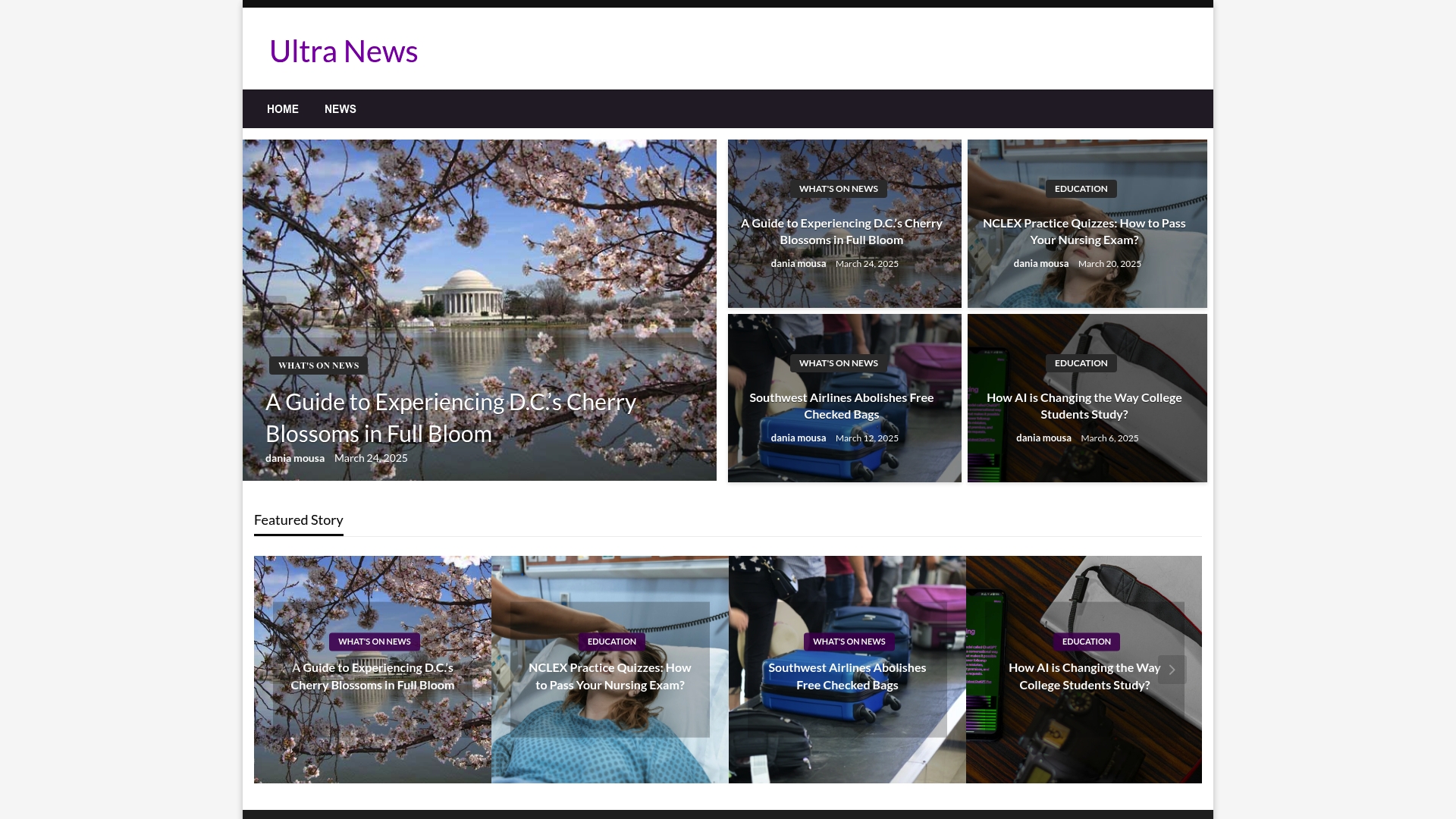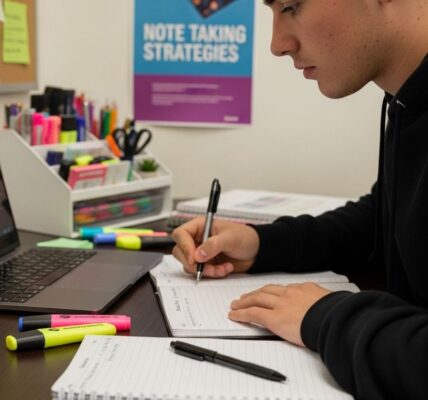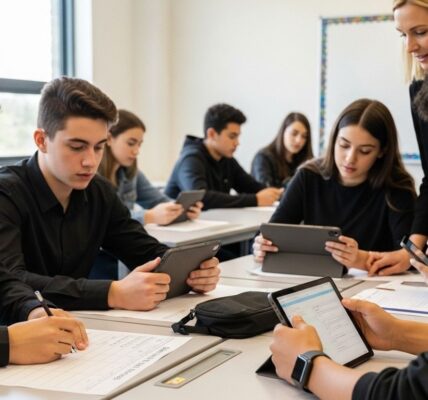
Studying for hours at a time and still forgetting what you learned feels frustrating and all too common. People usually trust old-school methods like rereading or highlighting, yet studies show those approaches may waste your time. What if using smarter strategies could let you remember far more with less effort and even cut your study time in half? Spaced practice, for example, can double your retention compared to cramming.
Table of Contents
- Understanding Smart Study Techniques
- Planning Your Study Sessions Effectively
- Maximizing Focus And Memory Retention
- Leveraging Technology And Resources Wisely
Quick Summary
| Takeaway | Explanation |
|---|---|
| Focus on Active Learning | Engage with material through discussion, self-testing, and connection-making to improve retention. |
| Use Spaced Practice | Distribute study sessions over time to enhance long-term memory storage and recall. |
| Create a Structured Study Timeline | Organize study blocks to maximize efficiency and ensure balanced coverage of subjects. |
| Employ Cognitive Load Management | Minimize distractions and break tasks into smaller segments to improve focus and understanding. |
| Leverage Technology Wisely | Use digital tools that promote engagement and actively support your learning objectives. |
Understanding Smart Study Techniques
Successful learning is not about how many hours you spend studying, but about the quality and effectiveness of your study strategies. Smart studying involves understanding how your brain processes and retains information, then applying targeted techniques that maximize learning potential.
The Science Behind Effective Learning
Modern educational research reveals that traditional study methods like passive reading and rote memorization are significantly less effective than active learning techniques. According to the University of North Carolina’s Learning Center, cognitive psychology provides insights into how our brains actually learn and retain information.
The key is understanding that learning is an active process requiring engagement, critical thinking, and strategic approaches. Instead of simply absorbing information, students need to interact with the material, create meaningful connections, and employ techniques that stimulate deeper cognitive processing.
Cognitive Strategies for Smart Studying
Smart study techniques are grounded in scientific understanding of memory and learning. They focus on several core principles:

- Spaced Practice: Spreading study sessions over time instead of cramming. This approach helps transfer information from short-term to long-term memory.
- Retrieval Practice: Actively recalling information through self-testing, which strengthens neural pathways and improves retention.
- Elaboration: Connecting new information with existing knowledge, creating richer mental frameworks for understanding.
These strategies transform studying from a passive activity into an active, dynamic process of comprehension and skill development. Research from educational psychologists demonstrates that students using these techniques consistently outperform those relying on traditional memorization methods.
Understanding how to study smart means recognizing that learning is not about the quantity of time spent, but the quality of mental engagement. By implementing targeted cognitive strategies, students can optimize their learning efficiency, reduce study time, and achieve better academic results.Learn more about boosting your study skills and discover techniques that can transform your academic performance.
Planning Your Study Sessions Effectively
Effective study planning transforms random learning attempts into structured, intentional academic progress. Success depends not just on studying hard, but on studying strategically with a well-designed approach that maximizes cognitive performance and minimizes wasted effort.
Creating a Strategic Study Timeline
According to the University of Pennsylvania, organizing study materials into smaller, manageable sections is crucial for maintaining focus and motivation. Breaking down complex subjects into digestible chunks helps prevent overwhelm and creates a sense of incremental achievement.
This table breaks down the main components of an effective study timeline, helping learners visualize and organize their approach as recommended in the article:
| Study Timeline Component | Core Actions | Benefits |
|---|---|---|
| Prioritization | Focus extra time on challenging subjects | Improved results in weak areas |
| Balanced Distribution | Alternate subjects across sessions | Prevents fatigue, keeps focus |
| Realistic Scheduling | Align study sessions with personal energy and schedule | Boosts motivation, sustainability |
| Manageable Sections | Break down complex topics into small chunks | Avoids overwhelm, tracks progress |
A comprehensive study timeline should incorporate several key elements:
- Prioritization: Identify challenging subjects and allocate more time and resources to them
- Balanced Distribution: Spread study sessions across different subjects to prevent mental fatigue
- Realistic Scheduling: Match study blocks with your natural energy levels and personal commitments
Optimizing Study Session Structure
Research from the University of Arkansas recommends implementing the ‘1 hour rule’ – studying intensely for 50 minutes followed by a 5-minute break. This approach helps maintain mental sharpness and prevents cognitive burnout.
Additionally, establishing a consistent study environment and routine signals your brain to enter a focused learning state. Choose a dedicated space with minimal distractions, good lighting, and comfortable seating. Consistency in your study location can significantly enhance concentration and information retention.
Implementing the Study Cycle
The University of North Carolina’s Learning Center introduces the ‘Study Cycle,’ a comprehensive approach to learning that goes beyond traditional studying methods. This cycle includes previewing material before class, attending lectures actively, reviewing notes within 24 hours, engaging in focused study sessions, and continuously self-assessing understanding.
By following this cycle, students can create a dynamic learning process that promotes deeper comprehension and long-term knowledge retention. The key is to view studying as an interactive, ongoing process rather than a passive, last-minute cramming session.Discover strategies to boost your study concentration and transform your academic performance through intentional, structured learning approaches.
Maximizing Focus and Memory Retention
Maintaining high levels of concentration and effectively retaining information are critical components of smart studying. Understanding how your brain processes and stores information can help you develop strategies that enhance learning efficiency and long-term memory.
Cognitive Load Management
According to Stanford University’s Center for Teaching and Learning, reducing cognitive load is essential for improving working memory and focus. This involves minimizing distractions and creating an environment that supports mental clarity.
Key strategies for managing cognitive load include:
- Task Automation: Use reminders and organizational tools to reduce mental clutter
- Information Chunking: Break complex information into smaller, manageable segments
- Physical Wellness: Maintain regular exercise and adequate sleep to support cognitive functions
Memory Enhancement Techniques
Research from Reading Rockets reveals that memory retention can be significantly improved through targeted learning strategies. Visual imagery, multi-format learning, and deliberate practice are powerful tools for strengthening memory recall.
Effective memory techniques include:
- Visual Mapping: Create mental images and diagrams to represent complex information
- Multimodal Learning: Engage multiple senses by combining visual, auditory, and kinesthetic learning methods
- Method of Loci: Use spatial memory techniques to associate information with specific locations
Advanced Study Strategies
Mohawk Valley Community College highlights two critical approaches for enhancing long-term learning: spaced practice and interleaving. Spaced practice involves distributing study sessions over time, while interleaving mixes different topics within a single study session.
These advanced strategies help prevent mental fatigue and promote deeper understanding by:
- Encouraging active recall
- Creating stronger neural connections
- Preventing information compartmentalization
Learn practical techniques to improve your concentration and transform your study approach with scientifically proven methods that optimize brain performance.
Leveraging Technology and Resources Wisely
In the digital age, technology offers unprecedented opportunities for enhancing learning. However, successful students understand that technology is a tool to be used strategically, not a magic solution for academic success. Wise integration of digital resources can dramatically transform study experiences and learning outcomes.
Smart Digital Learning Tools
Research investigating technology-enhanced learning environments reveals that digital tools can significantly improve self-regulated learning when implemented thoughtfully. Students benefit most from technologies that promote active engagement, collaboration, and personalized learning experiences.
Key digital resources include:
- Educational Platforms: Online learning management systems that track progress
- Interactive Study Apps: Tools that gamify learning and provide real-time feedback
- Collaborative Software: Platforms enabling group study and knowledge sharing
Technology-Supported Collaborative Learning
A groundbreaking study on student response systems demonstrated how smartphone applications like Socrative can dramatically enhance student engagement. These technologies create interactive learning environments where students can participate actively, receive immediate feedback, and learn from peer interactions.
Effective collaborative technologies help students:
- Overcome geographical learning barriers
- Access diverse perspectives
- Practice skills in dynamic, interactive environments
Designing Effective Digital Study Strategies
Project-based learning research highlights the importance of selecting technology tools that support genuine learning objectives. Not all digital resources are created equal. Students must critically evaluate technological solutions, focusing on those that genuinely enhance understanding rather than simply providing surface-level engagement.
Consider these guidelines when selecting digital learning resources:
- Prioritize tools with clear educational outcomes
- Look for platforms that encourage active learning
- Ensure technology complements, not replaces, fundamental learning skills
Explore innovative ways to integrate technology into your study routine and transform your academic approach with smart, strategic digital solutions.
Frequently Asked Questions
What are some effective strategies for studying smarter?
Focus on active learning techniques like spaced practice, retrieval practice, and elaboration to enhance retention and comprehension.
How does spaced practice improve learning?
Spaced practice enhances long-term memory retention by spreading study sessions over time, allowing your brain to process information more effectively.
What is the importance of creating a study timeline?
A study timeline helps organize study blocks, prioritizes challenging subjects, and ensures balanced coverage, maximizing efficiency and focus during study sessions.
How can technology support effective studying?
Technology can enhance learning through digital tools that promote engagement, collaboration, and personalized learning experiences, such as interactive apps and educational platforms.
Ready to Make Every Minute of Studying Count?
Are you tired of endlessly rereading your notes and still forgetting what matters most? Struggling to make real progress despite dedicating hours to traditional study methods? You are not alone. Many students face these same challenges and feel stuck in a cycle of wasted effort. The proven strategies from our article—like spaced practice, active recall, and cognitive load management—are just the start. Elevate your learning journey by accessing even more timely academic guides and efficiency tips at Ultra News, where our dedicated Education resources are crafted to meet your needs.

Stop guessing and start learning with clarity. Visit Ultra News for up-to-date educational articles and practical study guides. Discover new ways to boost your memory, focus, and confidence—right when you need it most. Take the next step toward smarter studying now by browsing our latest concentration improvement techniques.
Recommended
- 10 Effective Ways to Improve Concentration Fast – Ultra News
- How to Choose the Best Homework Helper App – Ultra News
- How AI is Changing the Way College Students Study? – Ultra News
- College Students – Ultra News
- Las mejores técnicas para tomar apuntes en clase – Aithor
- Top Study Techniques for Exams: Pilot Success Guide 2025




